Vancouver’s housing market may enter a correction with
price declines of at least 10 per cent, according to Stefane
Marion, Montreal-based chief economist and strategist at
National Bank of Canada.
“There is downside to single family homes in Vancouver,”
after policy changes in the last year such as higher downpayment
requirements and a provincial tax on foreign
buyers, Marion said Tuesday at the Bloomberg Canadian
Fixed Income Conference in New York. Price declines will
be moderated by the province’s strong job growth, he said.
“I don’t think it sends the economy into a tailspin. It’s a
healthy correction,” Marion said.
The Pacific Coast city is the focus of concern about a
crash, with prices surging well past $1 million on the lowest
mortgage rates in decades and a constrained supply of
land for new properties. The British Columbia provincial
government set a 15 per cent tax on foreign home buyers
that took effect last month, following several rounds of
federal government action to tighten mortgage rules.
Longer-term forces like low interest rates will help
Canada avoid a crash, and policy makers must guard
against cracking down on regional markets in a way that
adds to the risks, said Emanuella Enenajor, senior Canada
and U.S. economist at Bank of America Merrill Lynch in
New York.
“I wouldn’t be surprised if, barring any meaningful
regulatory shifts, housing continues to outperform,” she
said.
“Putting a foreign tax on the Vancouver housing market,
perhaps that pushes demand into other markets such as
Toronto, creates other kinds of distortions in the economy.
I think there is a need for a national solution.”
Governments have tried to keep a lid on house price
gains. The B.C. tax on purchases by foreigners contributed
to a 26 per cent decline in transactions in Vancouver in
August, though Toronto’s market continues to soar, with
prices up 18 per cent on average in the month.
Canada’s bigger problem right now is the lack of growth
led by private spending, something Bank of Canada
Governor Stephen Poloz has been counting on, Enenajor
said, adding that makes a cut in his 0.5 per cent policy
interest rate more likely than an increase.




